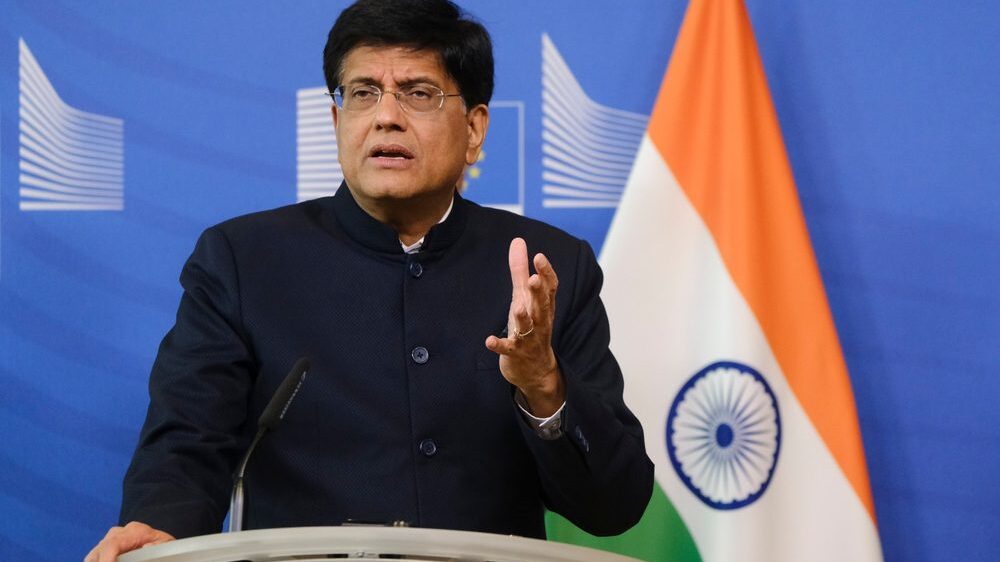
India’s Commerce and Industry Minister Piyush Goyal address the media during a press conference on the EU-India Trade and Technology Council at EU headquarters in Brussels, Belgium on May 16, 2023.
Photo: Alexandros Michailidis / Shutterstock.com
The Indian government is preparing to lodge a complaint with the World Trade Organization (WTO) against imminent EU tariffs on high-carbon imports due to concerns that the new regulations will negatively impact the Indian cement and steel industry.
The European Parliament passed the Carbon Border Adjustment Mechanism (CBAM) last month, designed to impose customs duties ranging from 20% to 35% on non-EU imports from heavy carbon-emitting industries. Critics, however, fear that it represents a threat to the free trade principles on which the EU is ostensibly founded.
The CBAM will come into effect from 2026 and is just the latest in a series of green protectionist measures passed by EU institutions that, some have argued, are a covert attempt to buttress the European economy against worsening economic fortunes and prepare for the rise of China.
Under the terms of the CBAM, importers will be forced to declare the carbon footprint of their products, the hope being that producers will switch to more sustainable forms of production.
India had previously lobbied against the CBAM viewing it as discriminatory. India’s Trade Minister Piyush Goyal has visited Brussels to discuss the matter with European officials.
Defining partnership of the 21st century 🇮🇳🤝🇪🇺 pic.twitter.com/7XscD6HFaA
— Piyush Goyal (@PiyushGoyal) May 16, 2023
The subject of carbon tariffs featured prominently at this week’s EU-India trade summit, where industry experts warned that it could cripple India’s market share in the European steel industry and open for greater competition from Brazil and China.
India is challenging the tariffs on the grounds that they represent an unfair disadvantage to Indian producers. New Delhi officials are affirming their commitment to the green transition but are asking for more time for its industries to become compliant with green regulations.
WTO rules call for the establishment of a panel to investigate any complaint by a member nation, with countries able to impose reciprocal measures if the findings of the WTO panel are not observed.
Earlier this year, similar objections against the CBAM were aired by American steel producers who are currently seeking exemptions from the new legislation.
The economics behind the green transition has dominated transatlantic relations in recent months. This has raised fears that any potential trade war between the EU and the U.S. could undermine global efforts to combat climate change and put the Western world’s economic security at risk.
The EU’s#CBAM Carbon Border Adjustment Mechanism is coming into effect soon, with significant implications for importers.
— ClearVUE.Business (@Clearvue_) April 24, 2023
Watch our summary video below! 📷 pic.twitter.com/RFE6Eu8XUb
The CBAM is the first mechanism of its kind in the world for carbon protectionism and could pose a direct threat to the rules-based trading system and lead to a cascade of short-term policies across the world and may even inadvertently increase carbon emissions.
The EU’s tariff policy is joined at the hip with Brussels’ new emission trading system, which imposes austere carbon limits on industrial sectors of the economy. There are fears that new climate diktats could jeopardise an already flatlining European economic policy.
The European steel industry has experienced thousands of job losses during the past year due to rising energy costs. German industrialists have warned that the continent faces a period of deindustrialisation.
